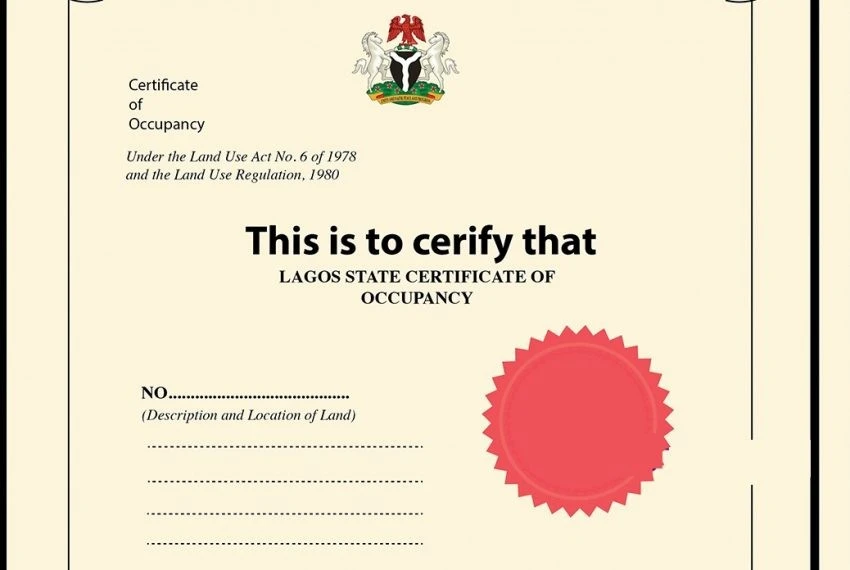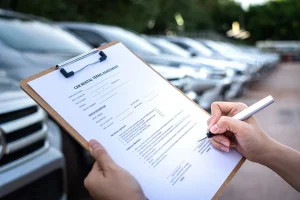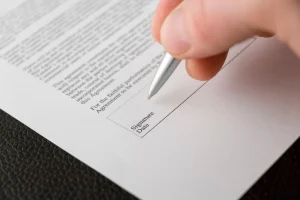How to Get a Proof of Ownership Certificate: Have you ever wondered what a proof of ownership certificate is and how to get one? If you have, then get ready to learn.
A Proof of Ownership Certificate is an essential document that establishes legal ownership of an asset, whether it’s real estate, a vehicle, or personal property. This document protects your rights as an owner and is often required in various transactions like sales, insurance claims, or legal disputes.
As you read, we will walk you through a comprehensive guide on how to get a Proof of Ownership Certificate.
READ ALSO:
- How to Check Plate Number Owner in Nigeria?
- Who Issues Vehicle Plate Number in Nigeria?
- How Much to Renew Car Papers in Lagos in 2024?
- Fine for Expired Car Papers in Nigeria 2024
- How to Get Car Papers if Lost in Nigeria
Reliable Steps on How to Get a Proof of Ownership Certificate
Below are the steps to easily get a proof of ownership certificate:
1. Understanding the Type of Ownership Certificate You Need
Wondering how to get a proof of ownership certificate? This is a reliable thing to do. Before you begin the process, identify the type of asset you need proof of ownership. The procedure and the kind of certificate you’ll require can vary depending on whether the asset is real estate, a vehicle, intellectual property, or personal property. For instance:
- Real Estate: Deeds and titles are the primary proof of ownership for properties. A certificate of title is often issued by the local land registry.
- Vehicles: For cars and other vehicles, the vehicle registration and title serve as proof of ownership.
- Personal Property: Receipts, invoices, or certificates of authenticity can serve as proof for items like jewellery, electronics, or artwork.
- Intellectual Property: Copyrights, patents, or trademarks serve as proof of ownership of intellectual property.
2. Obtaining Proof of Ownership for Real Estate
For real estate, a deed or title acts as the primary document to prove ownership. Here’s how to get it:
- Locate your Deed: If you already own the property, locate the original deed you received at the time of purchase. This document is usually provided during the closing process.
- Visit the Local Land Registry: If you cannot find your deed, visit the local land registry or recorder’s office. You can request a certified copy of the deed from this office. In many regions, this can also be done online through the official website of the land registry.
- Request a Title Search: If you want comprehensive proof of ownership, request a title search. This process involves checking the property’s history to ensure there are no claims or liens against it. A title company or attorney can assist with this.
3. Getting Proof of Ownership for Vehicles
Wondering how to get a proof of ownership certificate? Vehicles have a more standardized process for proving ownership. Follow the steps below:
- Locate the Title: The vehicle title is the primary document proving ownership. If you have misplaced it, you can request a duplicate from your state’s Department of Motor Vehicles (DMV).
- Contact the DMV: Visit the DMV’s website or office to find the procedure for obtaining a duplicate title. You may need to fill out a form and pay a small fee.
- Complete required Forms: Complete any necessary forms provided by the DMV, and provide proof of identity and any other required documents, such as a bill of sale or lien release if applicable.
4. How to Get Proof of Ownership for Personal Property
For personal items like electronics, jewellery, or collectables, the proof of ownership process varies. Follow the steps below:
- Retain Receipts: Keep all purchase receipts and invoices for high-value items. These documents serve as proof of ownership.
- Obtain Certificates of Authenticity: For items like artwork or antiques, a certificate of authenticity can serve as proof of ownership.
- Appraisals: Have items appraised and documented by a professional. Appraisal can serve as additional proof of ownership.
- Record Serial Numbers: For electronics and other serialized items, record the serial numbers and store them in a secure place.
5. Proving Ownership of Intellectual Property
Wondering how to get a proof of ownership certificate for intellectual property? If your asset is intellectual property, ownership proof involves registering the asset with the appropriate authority. Follow the steps below:
- Copyrights: Register your work with the relevant copyright office. In the United States, this is done through the U.S. Copyright Office. The registration certificate serves as proof of ownership.
- Patents: File a patent application with the patent office in your country (e.g., the U.S. Patent and Trademark Office). Upon approval, you will receive a patent certificate.
- Trademarks: Register your brand name, logo, or slogan with the trademark office. This will provide you with a trademark certificate as proof of ownership.
6. How to Get Digital Proof of Ownership
Wondering how to get a proof of ownership certificate for digital purposes? With the rise of digital assets like cryptocurrencies, NFTs (Non-Fungible Tokens), and domain names, proof of ownership often comes in the form of digital certificates or entries on a blockchain:
- Cryptocurrencies: Ownership is proven by having the private key to the wallet holding the assets. Make sure to securely store your private keys and backup phrases.
- NFTs: Ownership of NFTs is recorded on the blockchain. Your digital wallet serves as proof of ownership of these assets.
- Domain Names: Ownership is proven through domain registration records, often managed by domain registrars like GoDaddy or Namecheap. You can obtain a certificate of ownership through the registrar.
7. Steps to Secure and Verify Your Proof of Ownership
- Secure Storage: Store all original documents, titles, and certificates in a secure place, such as a safe deposit box. For digital assets, use encrypted digital storage solutions.
- Make Copies: Make copies of important documents and keep them in a separate location from the originals.
- Verification: Periodically verify that your ownership records are up to date and accurate, especially for assets that may change in value or require renewal (e.g., intellectual property).
Obtaining and maintaining a Proof of Ownership Certificate is essential for safeguarding your rights to various assets.
The process varies depending on the asset type, but the principles remain the same. By following the above steps, you can ensure that your ownership rights are well-documented and protected.



